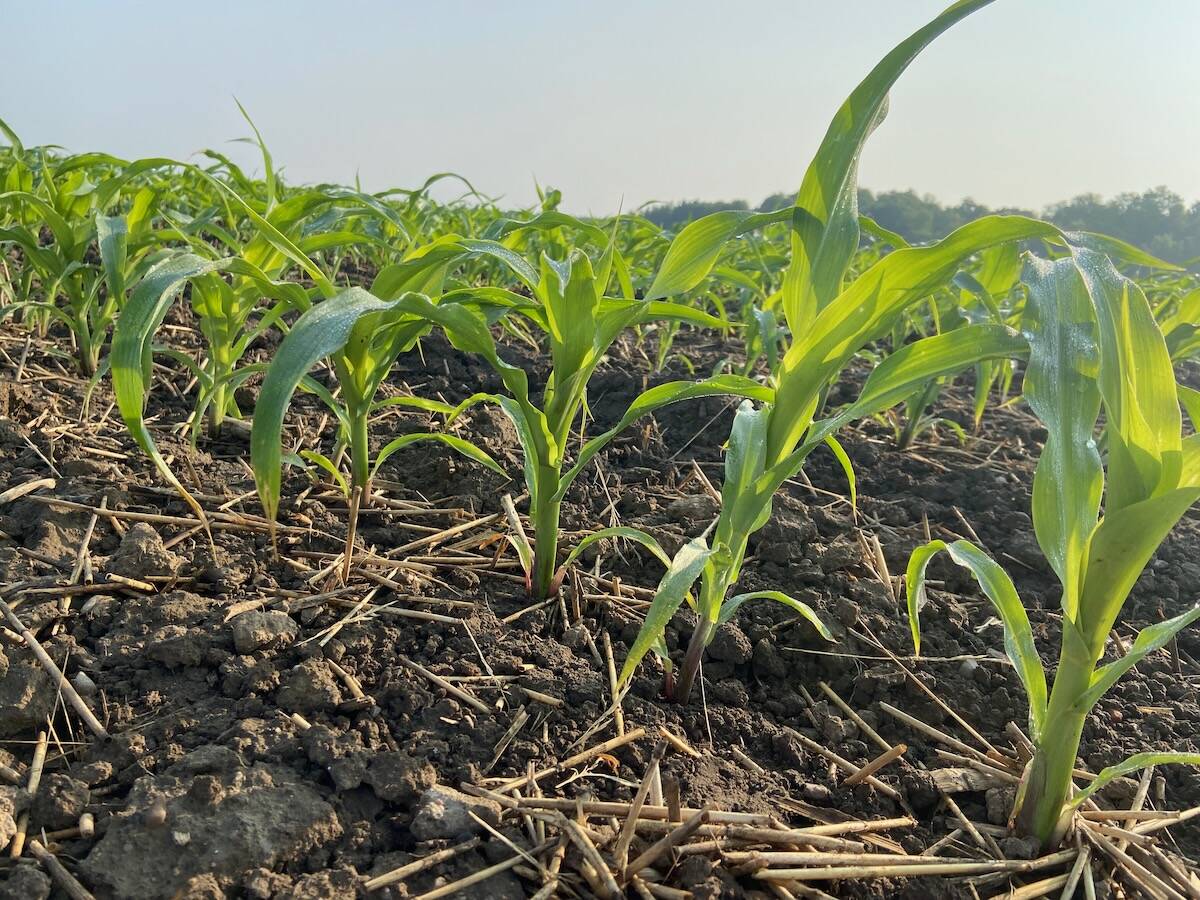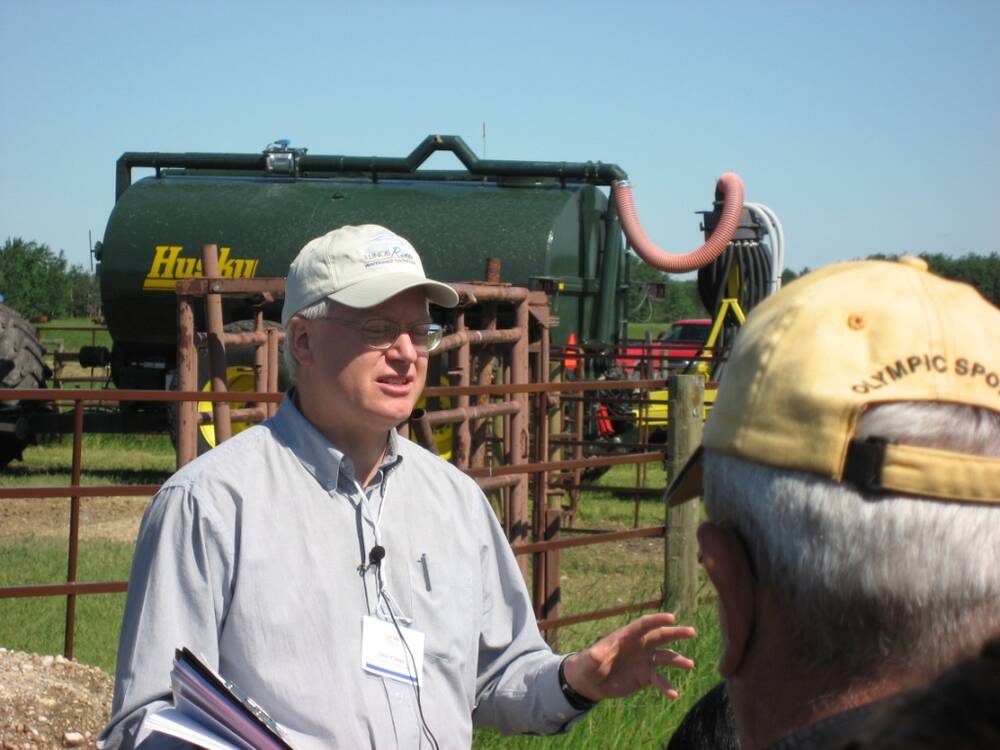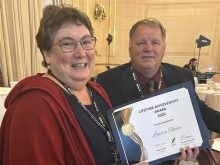Don Flaten’s recent induction into the Manitoba Agricultural Hall of Fame is a testament to his decades of dedication to agricultural science and education, his colleagues say.
Flaten, a professor emeritus at the University of Manitoba’s soil science department, retired in 2021, but he didn’t disappear from agricultural circles. Instead, he volunteers his time to help with research projects and has recently been back in the classroom to teach a class at his old stomping grounds when the initial professor had to take time off.
He’s also been advising producer groups and commodity associations.
Read Also

Can we trust the USDA crop data anymore?
Indications that farmers, analysts and traders have started to lose trust in data from the United States Department of Agriculture are hardly a surprise.
Why it matters: Don Flaten has been a go-to expert on soil fertility and agronomic management of crop nutrition for decades.
Known for his collaborative spirit, Flaten credits his success, which includes the Manitoba Canola Growers Canola Award of Excellence in 2020, to the teamwork he’s enjoyed along his career journey.
“Agriculture is a real team sport, and I think that I would like to be remembered as somebody who contributed to the success of our agricultural communities,” he said. “We all get help from each other. It’s not something that we can do on our own.”
Flaten’s career has included many jobs. His roles included a four-year stint as associate dean of the university’s faculty of agricultural and food sciences and director for the school of agriculture for 12 years. He spent a year as acting head of the soil sciences department and was chair of the National Centre for Livestock and the Environment from 2008-12.
The same year as the canola growers honoured him, Flaten was chosen by the U of M as the 2020 recipient of the Dr. and Mrs. Ralph Campbell Outreach Award “for meritorious service in outreach activities.”
According to a release from the university this summer, he’s taught an estimated 1,600 agriculture students at the institution and has has over 98 research publications in peer-reviewed journals.
Farmers often saw him with a mic in hand, explaining the latest research and trials at field days, and see his name at the top of reports authored for major commodity groups.
“Most farmers, industry employees and government workers in Manitoba can credit their understanding of soil fertility and crop nutrition to Don, a considerable impact of great longevity,” the university release said.
For Flaten, working with others and sharing knowledge has always been central to his methods. The exchange of ideas isn’t limited to the classroom, he noted. It also needs to happens within the wider agricultural community.
The latest award
Flaten said his induction into the hall of fame reminds him of the people who have contributed to the industry alongside him.
“One thing that this award really helped me to appreciate is the incredible role of my mentors and colleagues,” he said. “It’s a fantastic community to work with.”
Mario Tenuta, professor of soil ecology and associate head of the U of M department of soil science, echoed the sentiment. Flaten was acting head of the department when Tenuta applied in 2002 and was his main contact.
“We hit it off extremely well, talking about science. I was impressed by his thinking, experience and maturity,” Tenuta said, crediting Flaten as a major reason he chose to accept the position.
“I’ve always looked to Don for support and advice on the practical aspects of soils research, especially in soil fertility. Many of my projects with nitrogen stemmed from discussions with him … His help was invaluable.”
Sustainability
Environmental sustainability has drawn a lot of academic attention and research dollars in recent decades, and Flaten’s work has added its own data to the discourse.
“We’ve worked on issues related to water quality and trying to reduce nutrient loading into Lake Winnipeg… We wanted to make sure we have management practices that work in our landscape and climate,” Flaten said.
“He’s always constructive, balancing environmental, agronomic and economic factors,” said Tenuta. “He has a non-biased approach, and he’s never afraid to suggest practices that might not be what everyone wants to hear but are important for progress.”
Outreach
Flaten’s commitment to teamwork extended well beyond research. He spent much of his career acting as an advocate for future generations of agricultural leaders, said retired Co-operator reporter Allan Dawson, who was inducted into the hall of fame last year.
“He’s so supportive and wanting to promote other people in the industry … He was one of the people that wrote a letter of support for my induction,” Dawson said.
Flaten’s impact on his students has been profound, according to Tenuta.
“He’s taught every student coming through the University of Manitoba in soil fertility,” he said. “That’s a tremendous impact, and it carries on with professionals and farmers, continuing their knowledge.”
For his part, Flaten said he’s “learned at least as much as I’ve taught with the ag community.”
“Working with people, whether they be university students, farmers or members of the ag industry, and helping them to understand how science can be applied in ways that improve agriculture, has sort of been my life-long path.”
He’s been around long enough to see former students take leadership roles in the industry and that has been exciting to watch, he said.
“Don’s a gem for Manitoba,” added Tenuta. “He’s motivated so many people, myself included.”
Flaten was one of four people inducted at Red River Exhibition Park in Winnipeg on July 17.
This article has been updated to correct and clarify the terms of Don Flaten’s different roles and publication history.
















